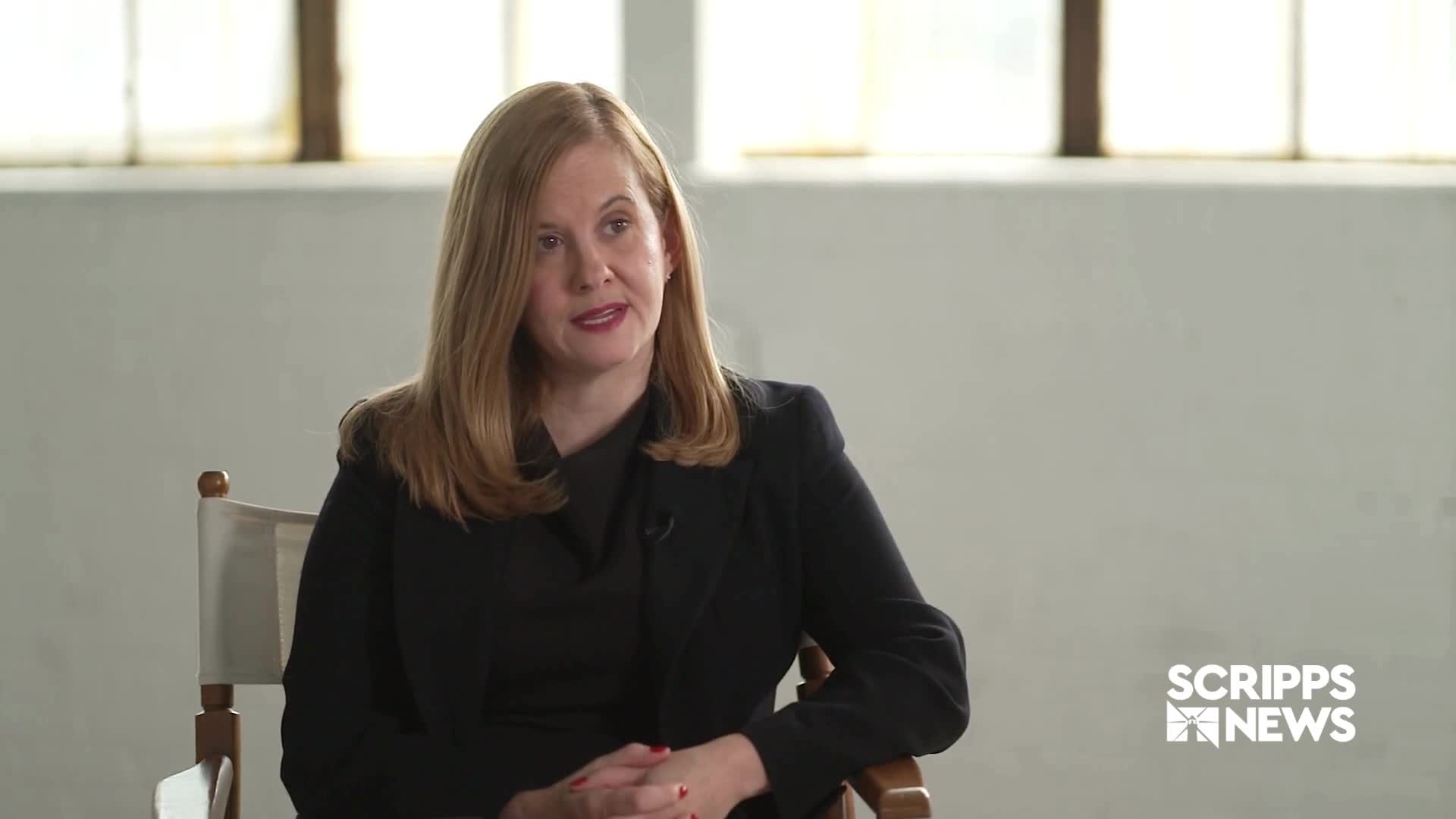Elizabeth Stein has long been an anti-trafficking advocate but only revealed in recent years who trafficked her. She's become a leading voice in demanding accountability for Epstein's enablers, justice for survivors, and education to help those who might be missing warning signs. We sat down with her for an extensive one on one interview.
Stein was a 21-year-old intern at a luxury department store when she was introduced to Ghislaine Maxwell.
"We shopped, and we talked a lot," she recounted. "I offered to bring Maxwell's packages to her, and when I called, I was told to meet her at the St. Regis Hotel. And when I arrived, the concierge let me know that she was in the bar and that she wanted me to meet someone, and that someone was Jeffrey Epstein."
That meeting began a three year dynamic between Stein, Maxwell and Epstein. According to a now settled lawsuit, Stein alleges she was raped by Maxwell, Epstein and unnamed people they introduced her to.
IN CASE YOU MISSED IT | Epstein survivors work to name alleged abusers outside official probe
Stein said she did not realize she had been trafficked until Epstein was arrested in 2019.
"The narrative in my head for the past three decades was that I had met these friends, and I was running with a crowd that ran too fast for me, and so the blame for what happened I always put on myself, and I didn't understand," she explained. "I saw it as a shortcoming in myself, and for decades, that was the narrative it was I did this wrong thing, and I was being punished for it in ways, and so when Epstein was arrested in 2019 I almost fell off my chair that day because I never thought that any of this happened to anyone other than myself. And to realize how many women it happened to after me really kind of made me feel ashamed, in a way, for not being strong enough when I was that young to say something about it."
The Supreme Court is currently debating taking up Maxwell's 20 year federal prison sentence.
"I am hoping that the American public wouldn't stand for that. If it did happen, this is a miscarriage of justice, and we're just seeing it overlooked at every turn," she said.
Stein played a role in influencing that sentence. She anonymously attended nearly every day of Maxwell's trial, only coming forward during the sentencing phase to deliver a victim impact statement. Maxwell was recently moved to a minimum security prison in Texas, something she calls a slap in the face to survivors.
RELATED STORY | Ghislaine Maxwell transferred to Texas prison amid renewed scrutiny of Epstein case
She, along with other survivors have said they found out about the move through the media. To this day, Stein has not been contacted by the White House nor the Department of Justice.
At a September rally on Capitol Hill, some survivors said they'd compile their own client list if the DOJ does not release one. Stein did not commit to contributing, and instead wants the pressure to be on the DOJ to disseminate that information.
The House's investigation is progressing and includes upcoming closed-door depositions with former FBI Director Jim Comey, Secretary of State Hillary Clinton and President Bill Clinton.
There will likely be a vote in the coming weeks circumventing Speaker Mike Johnson to push for the release of more Epstein related files.
We asked Stein what justice would look like for her.
"I don't know if we will ever fully see justice, but I think justice for us would be holding the people that were involved accountable and seeing past the lies that were being told, and really, to hold our government accountable, that would be justice," she said. "The focus that we need to put nationally, when we're looking on sex at sex trafficking cases, is who is the buyer, who is the recipient of these people? Because if we didn't have a demand, then there would be no need to supply people. And so for me, the men who harmed us, that would be an important piece."
Watch Stein's extensive interview with Scripps News in the video player above.





